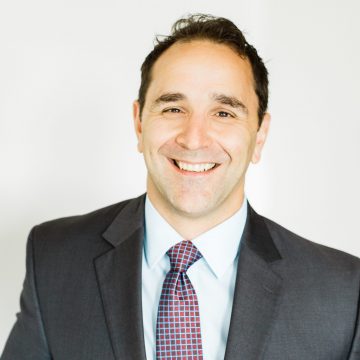After six suspenseful years, the Ohio Department of Medicaid (ODM) has finally begun to comply with federal law and adopted a change that will make long-term care benefits more accessible for today’s retirees. Retirement accounts will no longer be counted (or can be made not to count) as resources for determining Medicaid eligibility, which makes planning much more feasible for many people.
Using Medicaid for Long-Term Care
If someone needs long-term care (in-home assistance, assisted living, or a nursing home), that care is not paid for by private health insurance or Medicare. Nursing home care can cost, on average, around $9,000/month in Columbus. Most of us cannot afford to pay out of pocket for very long, so many will turn to Medicaid to cover these costs.
Long-term care Medicaid benefits are means-tested, which means:
- A single person can have no more than $2000 to their name (in addition to a home and a car)
- A married couple is limited to a maximum of $139,000 and often less
To qualify, people have to impoverish themselves, especially since the person receiving their benefits may have to contribute their income to their cost of care.
Taxes and Retirement Accounts
The home has been replaced as the most valuable asset in many estates by retirement accounts (IRAs, 401ks, 403bs, deferred compensations, Roths, etc.). While their presence in estates and their values have increased, they have also been the most challenging thing for elder law attorneys to protect.
Retirement accounts are owned by human beings, not trusts or LLCs, and cannot be transferred between people except by death or divorce. Except for Roth IRAs, the taxes haven’t been paid on the accounts, so if individuals want to cash it out, they’ll incur significant income tax hits.
The rules have always made safeguarding the home or after-tax investments ahead of time fairly straightforward. Still, the options for dealing with retirement accounts were limited, complex, expensive, and frustrating. Often, people would choose not to incur a tax hit now to protect their money for the future, then question the wisdom of protecting their $180,000 home if their $500,000 IRA was exposed. Those who chose against protecting it, in crisis situations, would end up with a serious tax bill by cashing out some of the IRA to defend the rest.
So, How Do the Changes Affect Long-term Care Medicaid?
Under the old rules, if a couple had $300,000 in their 403b plans, that counted toward their asset limit. They would have to spend their money until they reached $139,000 in total countable assets, incurring taxes along the way. Retirement accounts were not treated any differently than checking or brokerage accounts for eligibility purposes.
Starting in 2016, Ohio changed how it takes Medicaid funding from the federal government. As part of that change, it had to align with Social Security disability asset rules. Under Social Security rules, retirement accounts are not counted as assets if they pay out regular, periodic payments – those payments are counted as income instead. Think required minimum distributions here. In other words, as long as you take your required minimum distribution, or set up a recurring distribution that looks like a required minimum distribution, then Medicaid isn’t supposed to care how much is in that account, just how much those distributions are.
After four years, the Ohio Department of Medicaid finally started talking about making the change. Some counties adopted these rules consistently, others inconsistently, and some not all. Finally, after more than a year of promising guidance, ODM published Medicaid Eligibility Policy Letter 164 on May 26, 2022. This letter clarified how the Social Security rules applied to Ohio and confirmed that retirement account payouts should be treated as income, but the principal should not be counted.
How do the New Rules Affect Estate Planning?
The change means we won’t have to have people cash out their retirement accounts nearly as often. It will save taxes and allow more money for the applicant or the healthy spouse. We can rest safe knowing that we won’t have to do much to exempt the retirement funds from the traditional Medicaid spend down. Pre-planning is no longer an issue, and emergency planning may be reduced to just making sure that there are regular periodic payments. In the past, people have had to weigh the tax hit against the actual cost of care, and this new rule will essentially eliminate that calculation.
Things aren’t perfect – we will still have to worry about estate recovery, where Ohio tries to get money back from a Medicaid recipient’s estate – but this change will make Medicaid planning much more palatable to people with larger retirement accounts. If you have questions about long-term care planning and your estate, please call your attorney or any member of our Estate Planning group.





0 Comments